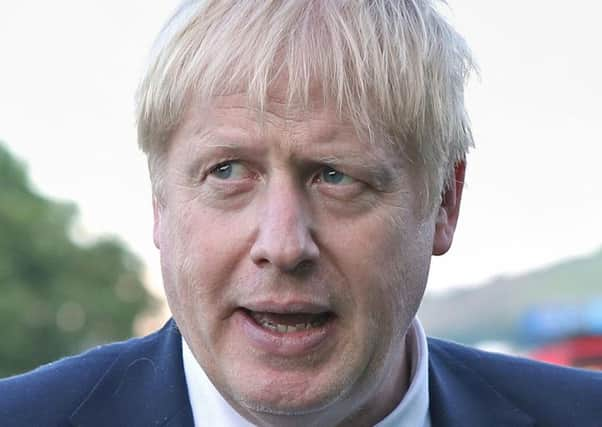Boris Johnson’s credibility is falling apart – leader comment


The credibility of Boris Johnson – and therefore his government – is falling apart. While the Prime Minister, previously sacked twice for dishonesty, continued to insist that progress was being made in talks with the EU about changing Theresa May’s Withdrawal Agreement, it was clear that many in the Commons and beyond simply do not believe him and that, instead, he is playing for time in order to bring about a no-deal Brexit.
If this is true, it is an utterly shameful act of deceit – a British Prime Minister telling lies in order to bring about an outcome that could cause severe damage to this country’s economy and which is far removed from the vision that saw a narrow majority vote in favour of leaving the EU more than three years ago.
Advertisement
Hide AdAdvertisement
Hide AdEx-chancellor Philip Hammond accused Johnson of “talking nonsense”, saying there were “no substantive negotiations going on”; former Conservative Cabinet minister Ken Clarke said the “obvious strategy” was to “set conditions that make no deal inevitable”, ensure others took the blame and then hold a “flag-raising election before the consequences of no deal become obvious”; and Labour’s Hilary Benn said “a growing number” of MPs now believed what Johnson really wanted was a no deal.
So it is hardly surprising that the government has lost its Commons majority, with the defection of Phillip Lee MP to the Liberal Democrats, and also lost a vote that means a cross-party group of MPs will take control of the parliamentary timetable, allowing them to put forward legislation designed to stop a no-deal.
Whether this will actually achieve its aim if it is passed is another question entirely. Even if Johnson is forced, against his wishes, to ask for a delay, the EU is not bound to agree. It is possible he could try to submit the request in accordance with such a law but in a way Brussels would find unacceptable.
The mistake MPs made was to trigger the UK’s departure under Article 50 before a deal was agreed and to put into law that Brexit would happen, deal or no deal. The latter scenario was always the dangerous default and all that hardcore Brexiteers had to do was to throw repeated spanners in the works to prevent a deal from being reached to achieve their aims.
A snap general election looms, but even that may not save the UK from plunging into an economic abyss of uncertain depth.